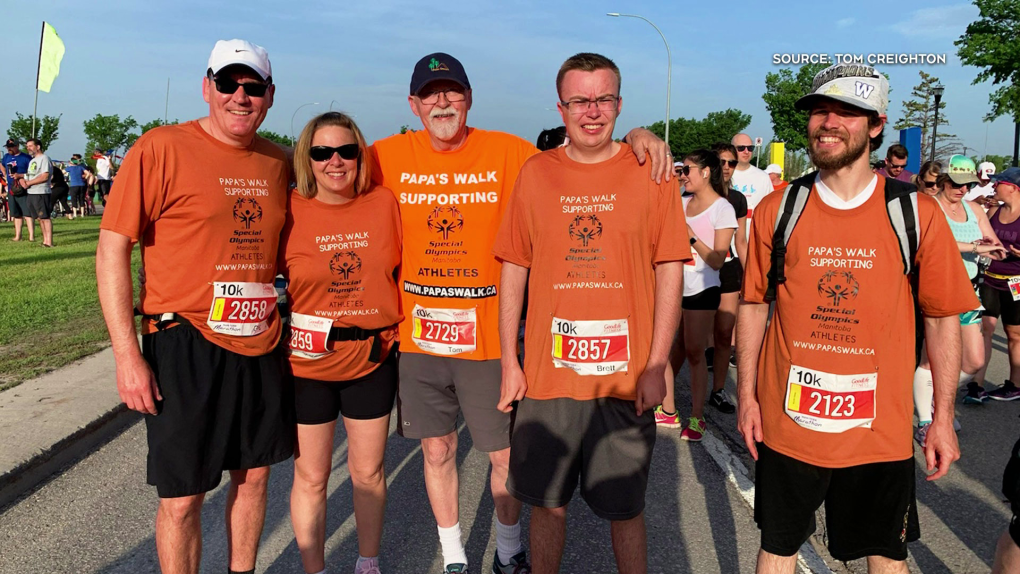By Irene Armitage – Hamiota, Man.
My parents were born in Cornwall, England, and married in 1920. Dad was a tin miner before the First World War, but mines were closing and there was no work after he returned.
In September, he came to Manitoba, leaving mom behind, as there wasn’t enough money for them both to leave. Expecting their first child in April, it wasn’t best for mom to travel three weeks across the Atlantic.
Dad found work looking after purebred cattle. When I was older, I thought it strange for a miner to manage cattle, but he spent eight years doing that. He was alone 19 months before he earned enough to send for mom. My sister was 13 months old before she met dad, and four years later I joined my family.
Enlisting in the British Expeditionary Force with Royal Field Artillery, he was in the trenches after the first mustard attack and suffered burns to his throat, returning to Cornwall to recover from shell shock. Never recovering, he returned after three months, and was sent to France.
I was six when I realized there was something was wrong. I had gone to bed early as I started school. Dad kissed me good night and went to his room. Later, I heard him talking and as I listened, his voice got louder.
He was shouting and thrashing around in his bed. I put my hand on his chest, and he was soaking wet. What I witnessed, told the whole story. “They’re coming, the Germans are coming and we don’t have any shells, they’re coming get ammunition!”
To this day, I can’t think of that night without crying. After that, mom always came to bed with him so she could be there when the nightmares started. She was the bravest woman I ever knew.
“It was never quiet”
When we were younger, we asked dad about the war. He changed the subject and mom would tell us not to ask.
One night we were having an electrical storm, lightning and thunder and no rain. Dad had been outside and after a while, he came back and asked the three of us to come outside. By then we had a brother.
Holding our hands, he took us to the top of the garden path. He said, “I want you to listen to the thunder and watch the lightening.” The storm lit up the sky. It was a panorama of the thunder and constant flashing of light.
After a while dad said, “This is what it was like, always roaring of guns and flashing of the bursting shells. It was never quiet,” and he took us back to mother. We went in, mom touched his face, and she knew what he had done. Dad is always with me when there is a storm.
The years went by, and there were happy times, but there were times dad would saw wood for hours so he wouldn’t think, taking medicine that wouldn’t work because they really didn’t know how to treat shell shock.
Then there were the tough times when he would take the dog and his rifle up the valley to shoot partridge. When he was no longer with us, mother told us she never knew if he’d return.
Victim for the second time
Dad retired from the railroad in March 1960. In April he found a lump in his mouth and ear. In Winnipeg he was told it was cancer, as a result of mustard gas. Dad refused surgery, wanting us to remember him as he was.
Cobalt treatments worked temporarily, but there was no stopping it. Before long, he could no longer speak and was forced to write notes, the pain unbearable. Boxing Day we took him to the hospital and two weeks later, WWI made my dad its victim for the second time.
Dad, and his pain from the war, left an impression on us all. I remember when WWII broke out, and he told us he was going to enlist again. I was 13, my brother was 11.
He had enlisted in the Veteran’s Guard to protect German prisoners of war. We were so unhappy. This time he was gone five years, only coming home summer and Christmas. When the war ended, dad bought mom a house. He had saved his paycheques during the war after sending part home to mother.
I wondered what it would be like to have a dad who hadn’t gone to war, but I loved mine dearly and wouldn’t have traded him. I am grateful for the years I had and my 36 years as his daughter.



